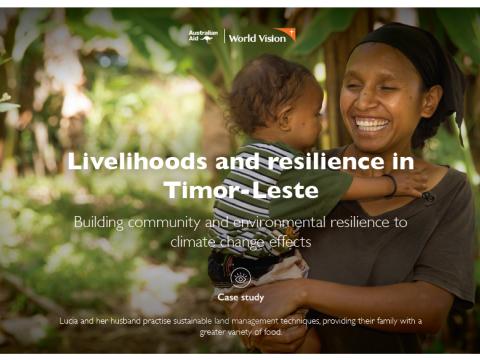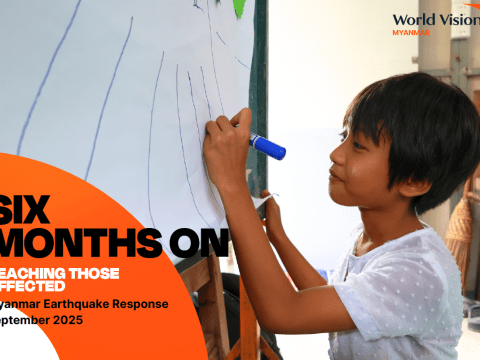Livelihoods and resilience in Timor-Leste
Download
In the mountainous Southeast Asian nation, forest and soil degradation is a major problem. Unsustainable land management practices, including slash and burn agriculture, have contributed to rapid deforestation.
Deforested hillsides are more prone to erosion and less able to hold water. Climate change, which is predicted to increase the frequency of extreme rainfall events, may further increase the likelihood of erosion, landslides and flooding.
These challenges pose significant risks for rural communities. They rely heavily on natural resources for their livelihoods, but have limited capacity to adapt to climate change. The country’s tumultuous history means it continues to grapple with poverty, under-development and low levels of education, and many regions experience a distinct ‘hungry season’ for up to four months a year.
Through the provision of seedlings, farming tools and training in Farmer Managed Natural Regeneration (FMNR), terracing and tree nursery management, World Vision is helping transform livelihoods in Timor-Leste.

